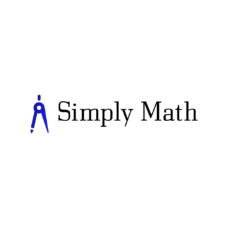Why You Should or Shouldn’t Use SAT Prep
Let’s be honest. SAT prep can be expensive. After all, there are many free resources out there. Before you decide if you should or shouldn’t pay for guidance, you need to realize what the SAT is and what it isn’t. The SAT isn’t actually a math and reading test. The SAT is an an aptitude test. Like any other aptitude test, there are strategies available to help you be more successful. Knowing the material isn’t enough for you to achieve the necessary scores to get into the school of your dreams or to obtain scholarships such as Bright Futures. The secret is the quality and quantity of SAT practice problems you are introduced to before your actual test. Our philosophy is to only use practice material provided by the College Board. After all, they are the creators of the SAT. Our hyper focused training on only the necessary concepts increases your retention rate on what is actually going to be tested. We are so confident in our instructional strategies, we give you a lifetime guarantee. When you purchase one of of our live SAT courses, you are a lifetime member. You can attend any of of our SAT courses in the future free of charge. However, we don’t think that will be necessary.
Why SAT Scores Matter
You are probably already aware, but the Bright Futures Scholarship awards are tied directly to SAT scores (or ACT). The Florida Academic Scholars (100% tuition paid) requires an SAT score of 1330. The Florida Medallion Scholars (75% tuition paid) requires a minimum SAT score of 1190. These scholarships have an estimated value between $20,000 and $25,000. The second reason the SAT scores are important is that many colleges require an SAT or ACT score for part of their admission process. The trend for colleges to be test optional during COVID is in decline. The reason being that SAT scores are directly correlated to college student success. Since 2014, the Board of Governors adopted a performance based funding model that financially rewards Florida’s Universities based on graduation rates, the speed at which students enter the workforce, and wages earned after graduation. Now that funding is tied to student success, colleges try to weed out potentially unsuccessful students during the admission process. The easiest way for colleges to filter out potentially unsuccessful students is through standardized test scores. Test scores are more consistent than GPAs, as some schools or teachers are more rigorous than others, while all students get a a very similar test.
What is on the Math Portion of the SAT
The new SAT has two sections, the first section being the Reading and Writing section, and the second being the Math section. Each section is broken into two modules. The first module has a variety of questions ranging from easy to complex. Based on how well you perform on the first module, the second module will be either easier or harder. The College Board uses an adaptive algorithm that uses your performance on the first module to generate the list of questions to use in the second module. The better you do in the first module, the harder the second module is going to be. Most of the questions are multiple choice, but you will have to enter some of your answers. Students will have 70 minutes to complete the 44 questions in the Math section .
The Math focuses on 4 areas: Algebra (13-15 questions), Advanced Math (13-15 questions), Problem Solving and Data Analysis (5-7 questions), and Geometry & Trigonometry (5-7 questions). Approximately 30% of problems are word problems. Approved calculators can be found here.
What is on the Reading and Writing Portion
The Reading and Writing section presents short reading passages (or passage pairs) followed by a single multiple-choice question. Questions on the Reading and Writing section represent one of four content domains—Craft and Structure, Information and Ideas, Standard English Conventions, and Expression of Ideas. To help you budget your time, questions that test similar skills and knowledge are grouped together and arranged from easiest to hardest.
The test is divided into 2 modules, each of which includes questions from all four different domains.
The passages in the Reading and Writing section range from 25 to 150 words. Passages represent the subject areas of literature, history/social studies, the humanities, and science.
